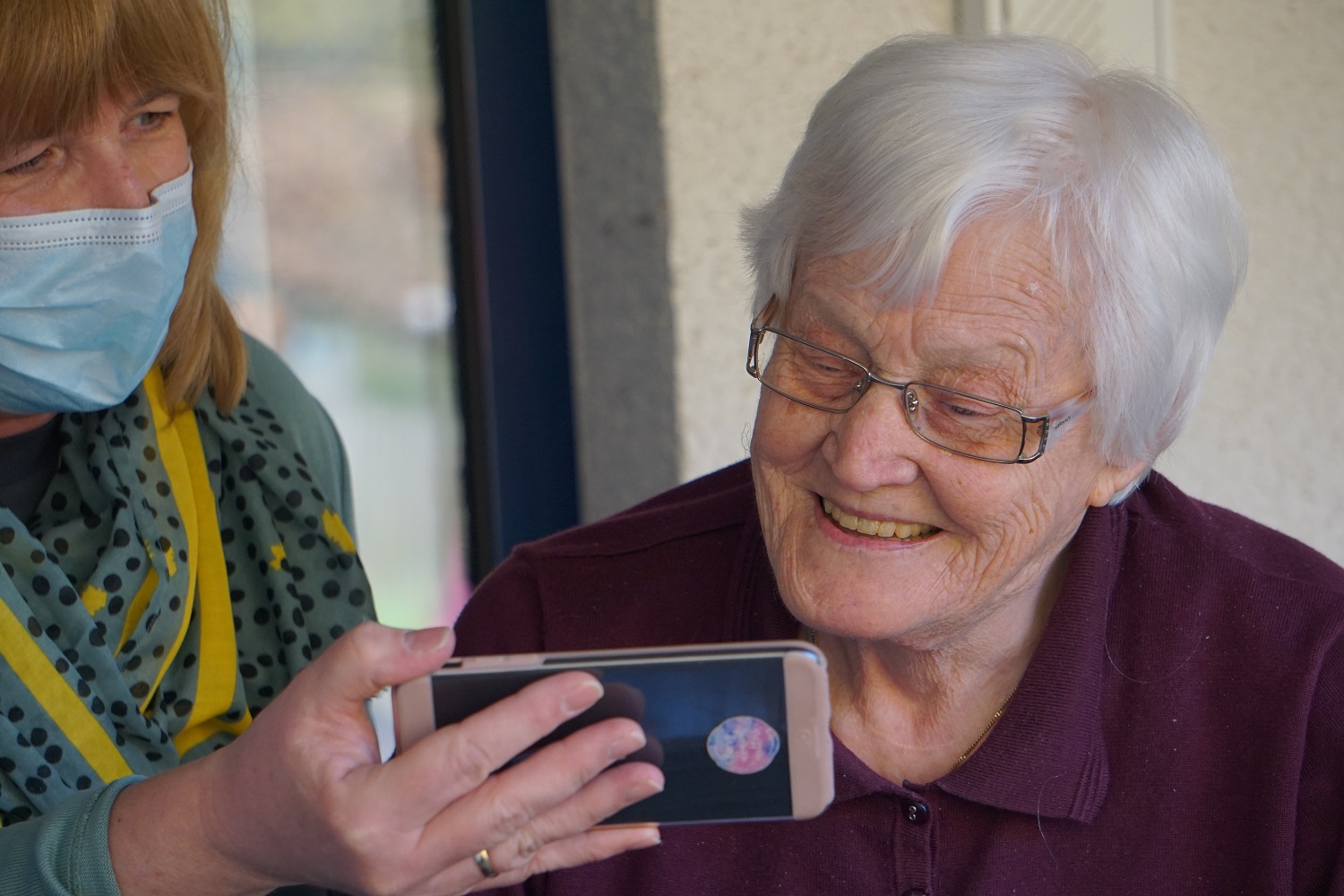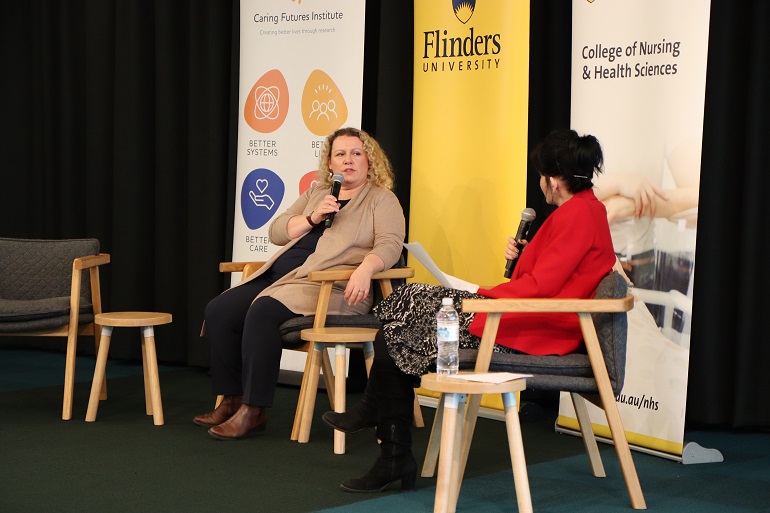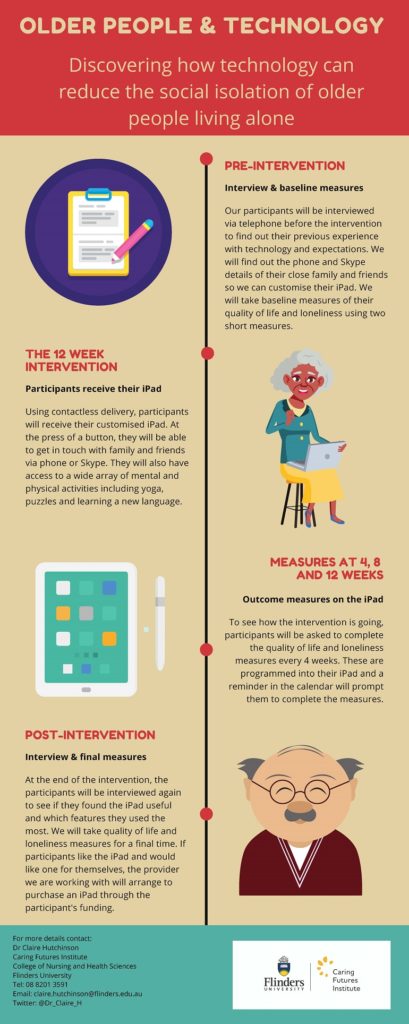
A team of Caring Futures Institute researchers are looking into how technology can reduce loneliness experienced by older people due to the COVID-19 pandemic.
The team led by Caring Futures Institute theme lead and health economics expert Professor Julie Ratcliffe as well as Dr Claire Hutchinson, will explore how supplying customised iPads to older people can enhance their quality of life and prevent loneliness during social isolation.
The study is funded by the Caring Future Institute’s COVID-19 grant scheme, designed to explore the health and care needs of the community during the pandemic.
“There were many media stories about older people dying alone from COVID-19 and some heartwarming stories showing healthcare workers holding up phones or iPads so that patients would talk and see their loved ones while they were sick in hospital,” says Dr Hutchinson.
“We saw the potential for technology to support connection, not only for older people who are sick but also those who are self-isolating in the community, who may be experiencing lack of social connection and loneliness.”
Experience will be monitored through a quality of life measure known as the ‘Quality of Life – Aged Care Consumers’ measure or QOL – ACC, which is being developed through an Australian Research Council (ARC) linkage project led by Professor Ratcliffe. Loneliness will be measured through the University of California, Los Angeles (UCLA) Loneliness Scale.
“This interdisciplinary research builds on two existing Flinders University projects. Firstly, a Flinders Digital Health project called FAME, an iPad-based platform with a simple interface co-designed with older people,” Dr Hutchinson explains.
“The second project is a CFI-led ARC Linkage project to develop a quality of life instrument with older people for quality assessment and economic evaluation.”

Dr Hutchinson says she is hopeful that the results will lead to future research into older people’s ability to become more familiar with digital technologies to help prevent loneliness.
“If the introduction of technology to older people in the community is successful, we anticipate a wider future study in residential aged care working together with our colleagues at Flinders Digital Health,” she says.
“We expect participants to experience reduced loneliness as they will be able to video call friends and family during the 12 weeks intervention.
“We also expect improved quality of life as three of our five quality of life questions relate to social connections, activities and emotional well-being – all dimensions which we expect to be positively impacted by the 12-week intervention.”
This research is a step in the right direction for ensuring quality of life, connection, and wellbeing for everyone in society, making sure no one gets left behind in this ever-changing technological era.
With contactless interviews and intervention under way, the study is in the works with results due to be finalised by November.
The research team also includes Dr Lua Perimal-Lewis from Flinders Digital Health and Associate Professor Ruth Walker from the College of Nursing and Health Sciences, both of whom are members of the Caring Futures Institute.


